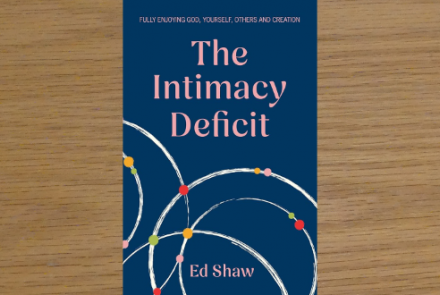What the Bible Tells Us About Singleness
Receiving a gift should stir feelings of great gratitude. But if we were to play a word association game with ‘singleness’ - described in Scripture as a gift (1 Corinthians 7:7) - how many of us would associate it with joy, thankfulness and other positive emotions? There have certainly been times I’ve failed to treat this gift as something good, provided by our loving heavenly Father. So, why is singleness not valued as it should be?
Be Fruitful and Multiply
Rightly viewing singleness as a gift can lead to theological confusion. For example, the first command in Scripture is “Be fruitful and multiply” (Gen 1:28). We are also told that “It is not good for the man to be alone” (Gen 2:18). To fulfil the mandate given to the man, a suitable partner was needed. With that in mind, singleness seems counter-productive. Added to this, throughout the Old Covenant, the importance of physical fruitfulness is continually highlighted. When someone doesn’t bear children, it’s seen as a tragedy in Old Testament times. When Jeremiah is told not to marry (Jeremiah 16:2), his singleness acts as a symbolic judgment against God’s people. What has changed?
Be Fruitful for the Kingdom
As Christians, we affirm that marriage is a good gift from God. All being well, physical fruitfulness flows from that union, and we should uphold the blessing, joy and importance of childbearing. God’s Kingdom, however, no longer manifests itself in a physical, geo-political way (Luke 17:21). Therefore, Kingdom fruitfulness is not primarily physical but spiritual. It centres around the gospel. Jesus highlights this by using the imagery of a eunuch: “…there are those who choose to live like eunuchs for the sake of the kingdom of heaven” (Matthew 19:12). God’s Kingdom is the motivating factor behind their singleness.
Such is the blessing that singleness brings, Paul wishes all were single and celibate like him (1 Corinthians 7:7). Different motivations for singleness, such as the “present crisis” (1 Corinthians 7:26), something not specifically described by Paul, could have been in view. Regardless, the purpose and motivation for singleness is once again given in terms of Kingdom fruitfulness or, to use Paul’s words, serving the Lord with “undivided devotion” (1 Corinthians 7:35). I’m sure, on a practical level, it was useful for Paul not to have to write home to his wife after every long missionary journey and the odd shipwreck! (2 Corinthians 11:25) I’ve often heard singleness described as a subjective calling. There is some support for this; for example, Jesus mentions “those to whom it has been given” (Matthew 19:11). We, therefore, shouldn’t dismiss the subjective nature of the gift. However, it’s too easy to dismiss this gift and pass that dismissal off as “not being called” to singleness. With the opportunities singleness gives for Kingdom fruitfulness, could we not also view singleness as a gift in and of itself, apart from the subjective calling? Paul’s language in 1 Corinthians 7 certainly indicates that marriage and singleness are objective gifts from God, not just subjective callings. The implications for this are profound. Whatever our perceived calling, we should use the objective gift of singleness for the sake of the gospel.
Be Mission-Minded
Marriage is a picture of God’s passion for His bride, the Church, and His continued faithfulness to her. But, whereas marriage is a picture of the gospel (Ephesians 5:32), singleness gives unique opportunities to serve in gospel work. Therefore, whatever gift we currently possess - marriage or singleness - the gospel should be the centre of gravity around which our marital status revolves. If the gift of singleness is ripped from its purpose to allow unique devotion to gospel work, it will cease to be a gift. In contrast, if we grow in becoming more mission-minded, the unique opportunities that singleness provides will enable us to unwrap and enjoy this precious gift. Of course, there may be many steps involved in treating singleness with the honour it deserves. These could include building stronger friendships so that we enjoy more intimacy with others. But whatever other steps may be involved, the first must be one of prioritising Kingdom fruitfulness. If that first step is not taken, all the others will be in vain.
If we are struggling to see singleness as a gift, then maybe to rectify this we should meditate on the gospel. The more our hearts are inflamed by the good news about Jesus, the more we will appreciate the gift of singleness and the unique opportunities to be fruitful in God’s Kingdom, by serving God with undivided devotion.
If we recognise the purpose of the gift, then those of us who are single can use the unique opportunities provided to be fruitful and multiply for the sake of the gospel. What an amazing gift singleness is in allowing us that privilege!
This article was originally published in the Autumn 2019 edition of the TFT magazine, Ascend.






